Special Olympics bowling is more than meeting with your buddies every Sunday.
Special Olympics bowling leagues stand out in comparison to sports like soccer or baseball because Special Olympics bowling brings every lane together. Athletes can also use equipment like bowling ramps and grips so everyone can join in on the fun.
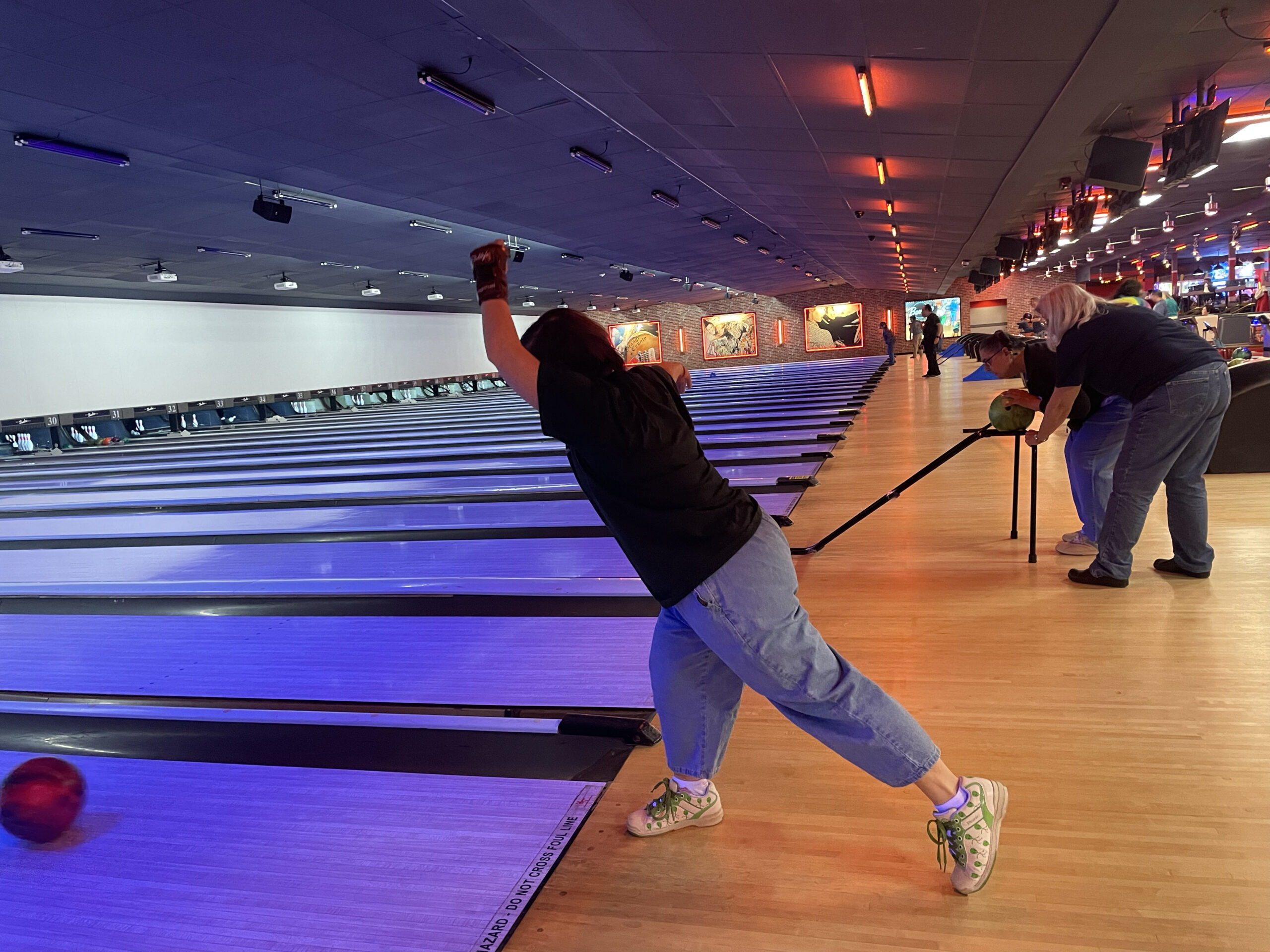
See How They Roll:
Kari and January, two residents at Gabriel Homes, bowl each Sunday for the Northern Virginia Special Olympics. Having bowled together for over 25 years, they often share lanes and bowl as a team with their friends.
“I’ve been bowling since middle school, and I’ve gotten much stronger when rolling the ball,” January says. “I still practice before playing, and I’m working to grip the ball better to have more control.”
Athletes in the league say consistency is the hardest part about bowling. Sarah is a longtime friend and league competitor with January and Kari. She likes swinging the ball when she rolls because it helps her focus on the line and pins.
Sarah’s advice for new bowlers:
“Train very seriously. Have your parents teach you. Be on time when it’s your turn to bowl and have focus and concentration.”
Sarah, Special Olympics Bowler
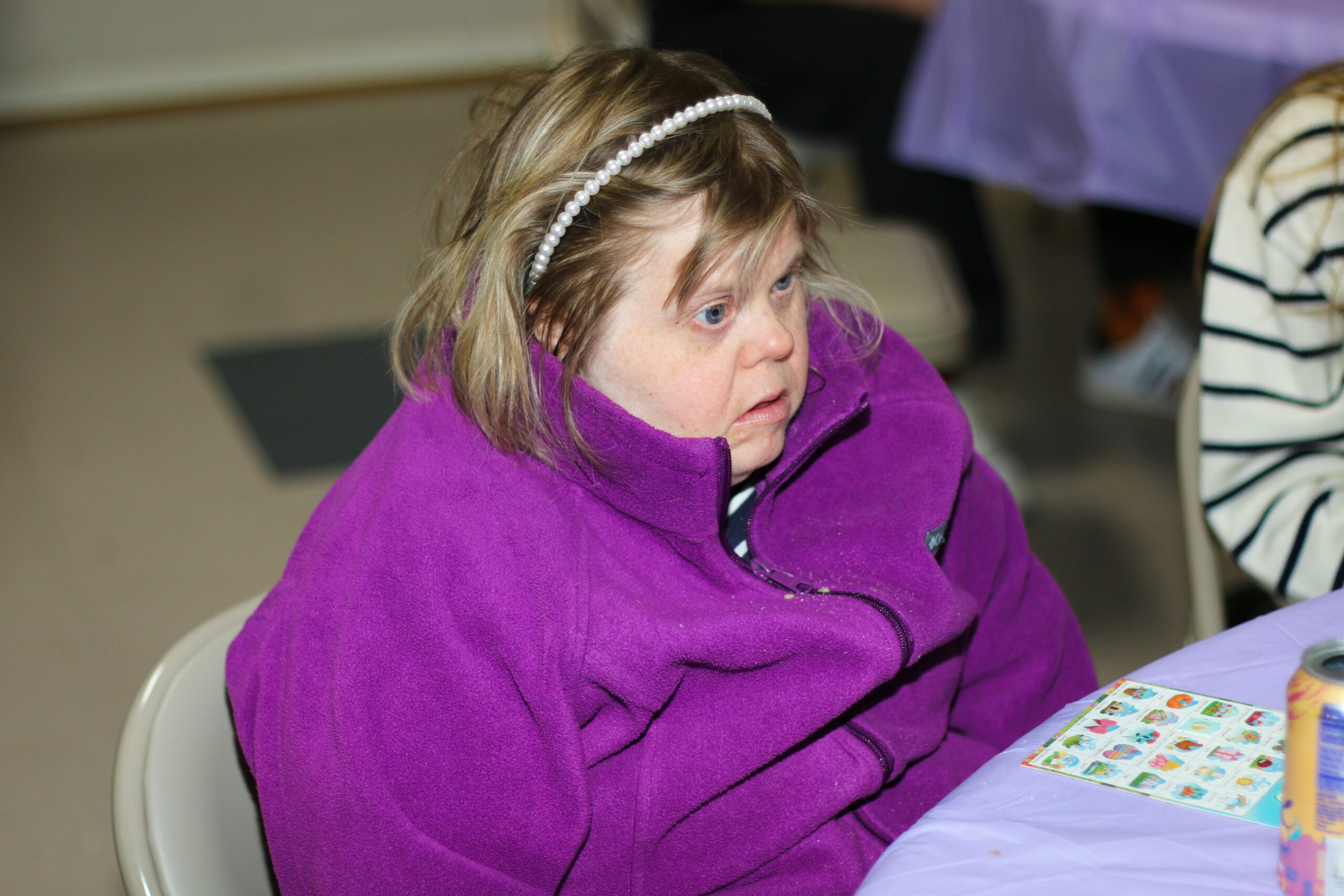
Pins, Pins, Pins:
Looking at goals for this season, Kari wants to hit more pins. She’s yet to bowl a perfect game (bowling 12 strikes in a row), but she wants to improve her posture and movement to get the highest score.
“Bowling’s a hard sport, and we work a lot to roll more strikes and spares,” Kari says. “My coaches give me good advice when I warm up and ask for help.”
Both see drastic improvements in Special Olympics bowling over time.
Working with coaches and friends like Sarah, January and Kari are more confident when they head to the alley every Sunday.
“In the past, both ladies have attended State Games in Richmond during the summer Special Olympics games. Of course, they are cheered on for their strikes and good bowling scores. Bowling is a lifelong sport they can continue to enjoy for many years to come.”
Linda, Kari’s Mom
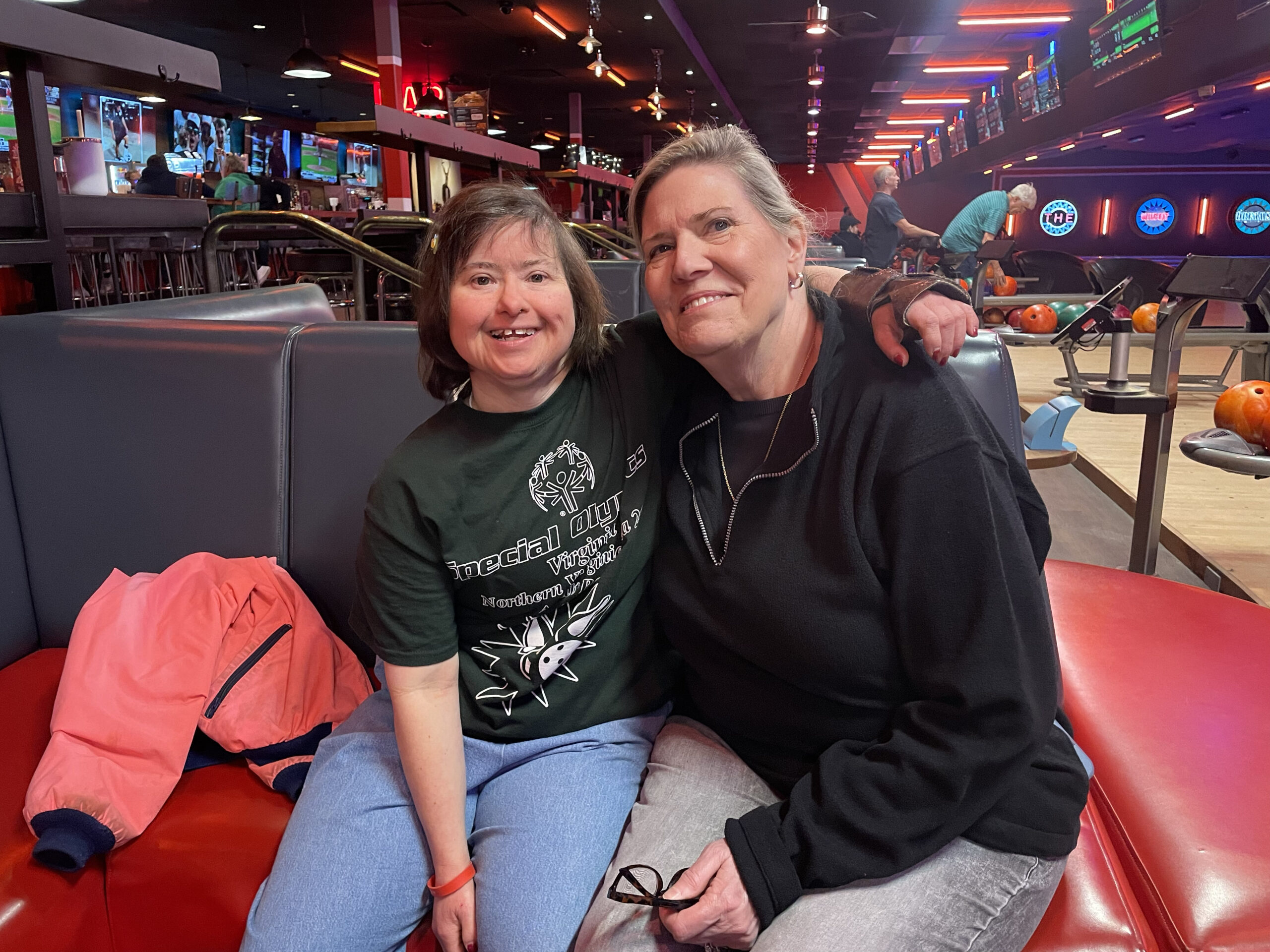
Special Olympics bowling is also fulfilling for coaches and organizers.
League coordinator Laura Cameron (right), whose daughter competes in the league, worked with adults with intellectual and developmental disabilities (IDD) when she was younger. Now with her daughter and the Special Olympics, Laura is more patient with athletes than before and believes her coaches are the foundation of the league’s success.
“The athletes are the reason we’re here,” Laura says. “Everyone’s encouraged to have fun. We don’t care who wins or loses. When you’re here, you make new friends and have fun.”
For Coach Kendall Heren...
… weekends are her time to be with people she advocates for. Coach Kendall helps guide parents of adults with IDD through special education hurdles at KNH Advocacy.
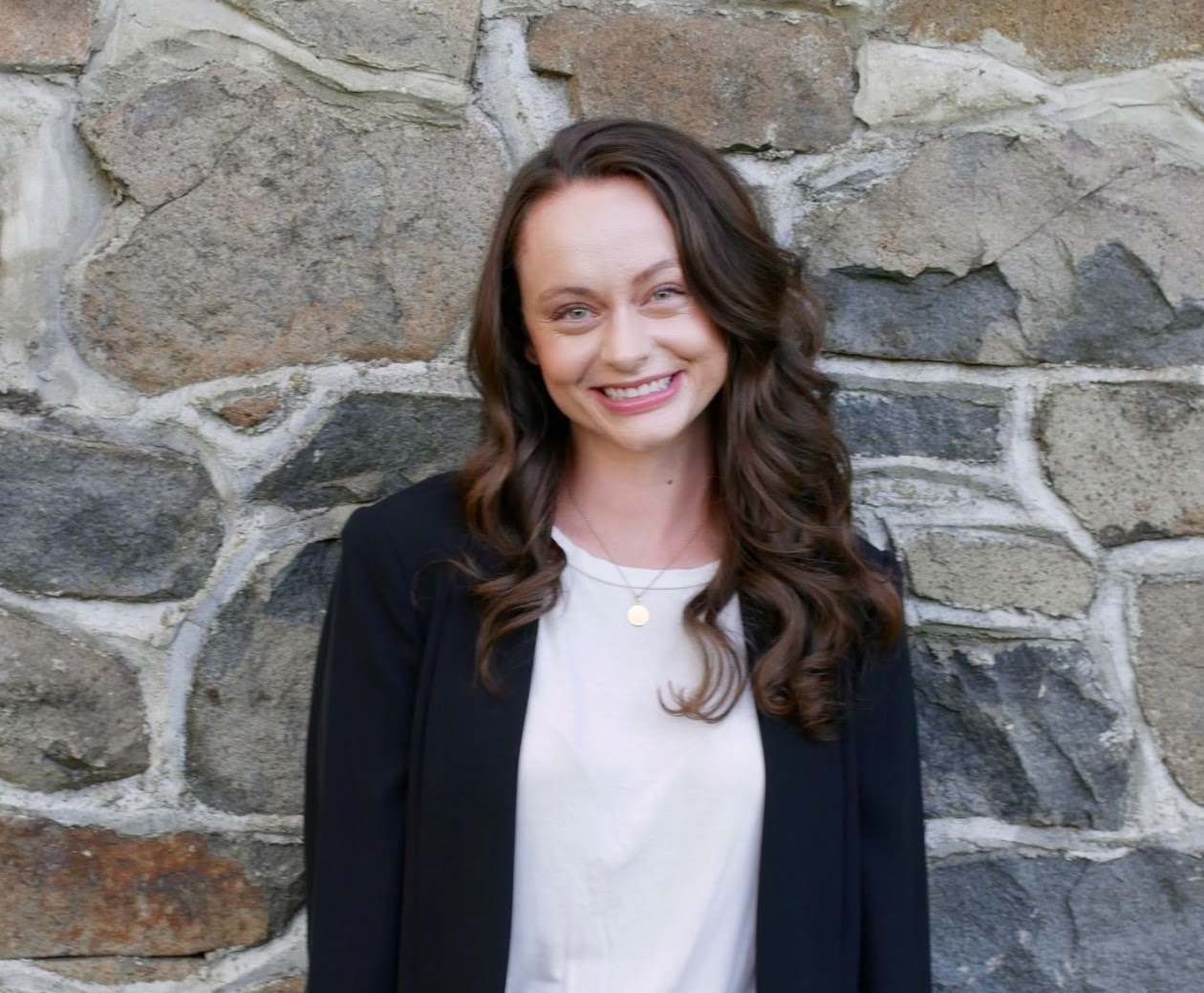
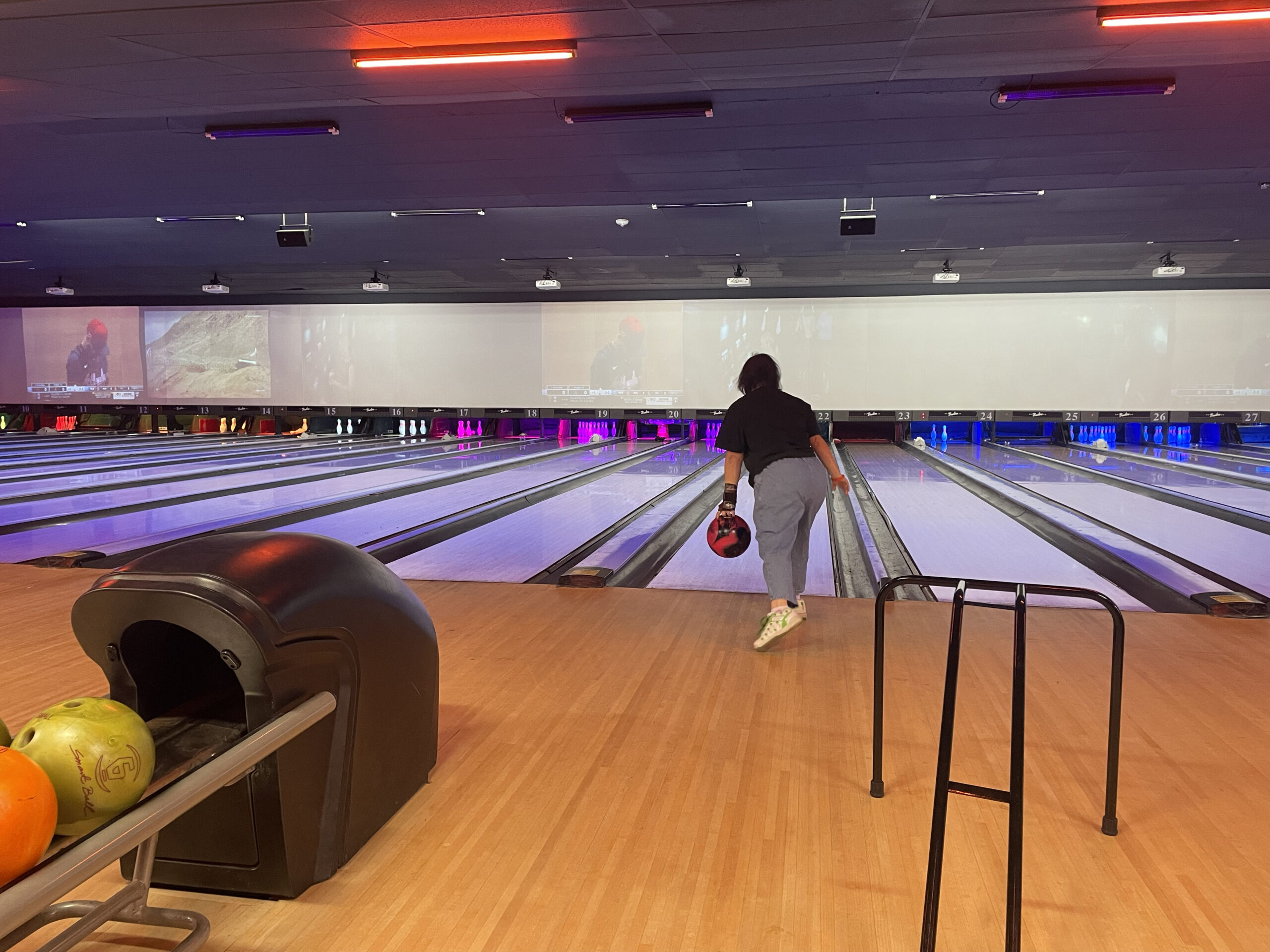
Friendships are the heart and soul of Special Olympics bowling.
Athletes and coaches run toward their friends and hug when they see each other. Lanes of players jump up and down and clap for their buddies when they roll spares or strikes. Every athlete brings something unique to Special Olympics bowling, like personalities and bowling styles.
“Everything is the best part about Special Olympics bowling,” January says. “I get to be with friends like Kari and Sarah, and I have fun cheering with my friends and coaches.”
January made it to states in Special Olympics soccer last year!
See how she and her team shined throughout the season at gabrielhomes.org/stories.